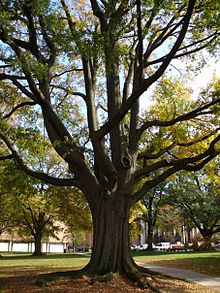
For too long, they’ve been playing defense. That is, a developer (or homeowner) would decide to cut down some trees, and there would be a process the arborist could object to. That’s defense.
Offense is something else.
It starts with a much bigger budget. Use the money to hire summer workers who will comb the city on foot and by bike, with cameras, identifying lots without tree canopy. Fine those suckers, preferably through a property tax surtax from which they can’t escape. Those same summer workers can identify lots with a full tree canopy. These property owners can apply for a bonus, again in the form of a property tax abatement. The bonus would be smaller than the penalty, providing money for the arborist’s budget. The workers are also more likely to grow up as supporters of trees.
The arborist should also work with independent groups, like Trees Atlanta in Atlanta, to offer property owners advice on what trees they should plant where. Trees Atlanta can use existing programs to pay for those trees where people can’t afford them. And before poor people start futzing about huge trees falling on their houses, there are plenty of smaller trees to choose from.
We can argue about what defines canopy. Is it just the unbuilt areas of the property, or does it include roofs? Trees over a roof can cut cooling bills. But solar panels on a roof can do the same thing.
The arborist should also work with property owners and non-government agencies to get trees on roofs. Every flat roof can be a garden. Every small roof can have a canopy.
A city that wants to grow, expanding the amount of land that’s built-up, has a responsibility to let arborists go on offense. Otherwise, it’s part of the global warming problem. You don’t want that to be your political obituary. Or the actual one for your children.










